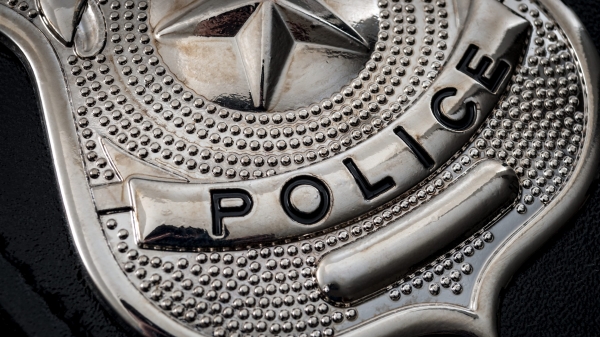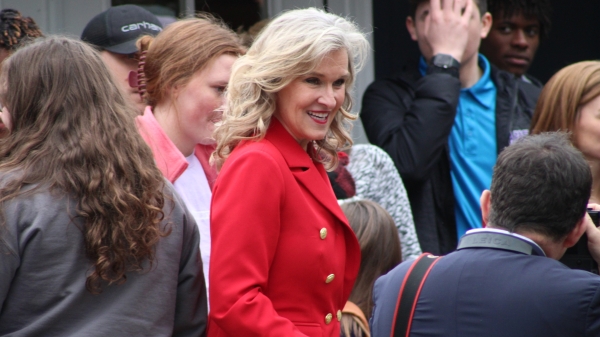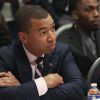By Bill Britt
Alabama Political Reporter
MONTGOMERY— For years, it was speculated that Mike Hubbard was given an unfair advantage in obtaining a Auburn University media contract worth millions of dollars. It had been rumored that Hubbard was given the sealed bids of other media companies vying for the lucrative multimedia rights to Auburn athletics.
Now, for the first time, the person who personally help Hubbard win that contract has come forward.
Hubbard worked at Auburn University for six years as an assistant sports information director before leaving in 1990 to work for Host Communications, Inc., which held the multimedia rights to Auburn athletics.
After learning the business, Hubbard then wrestled the contract away from Host through a no-bid contract in 1994 and formed the Auburn Network.
In the late 1990s, the Auburn Network began experiencing financial difficulties.
Trying to rebuild and facing what he apparently perceived as possible retribution from the school’s athletic director, Hubbard turned to then-Auburn University chief lobbyist Buddy Mitchell for assistance.
Mitchell said Hubbard first acknowledged to him his that company was on the verge of going bankrupt.
Initially, forced by Auburn to go through a competitive bid process for the first time, according to Mitchell’s statements, Hubbard was given access to all of his competitor’s proprietary proposals prior to making his winning offer for the contract.
For years, it was speculated that Hubbard was given an unfair advantage in obtaining the Auburn contract. Mitchell, who was executive director of the Office of Governmental Affairs at Auburn from 1993 to 2004, said in a sworn affidavit that he personally delivered the competitors’ proposals to Hubbard.
In accepting Hubbard’s five-year, $8.5 million deal in 2002, Auburn, in turn, rejected a competitor’s bid that offered $12.5 million over the same period. That meant Auburn received $4 million less under Hubbard’s proposal than under the bid more financially beneficial to Auburn.
Mitchell detailed in his affidavit how Hubbard approached him numerous times in 2001 and 2002, “desperately” seeking his help in obtaining copies of his competitors’ proposals. “Hubbard wanted to evaluate his competitors’ proposals because he was concerned about his financial future if he lost the contract,” said Mitchell.
Hubbard and Mitchell had become good friends because Mitchell had helped steer Hubbard through his rookie season in the Alabama House, starting in 1999. Hubbard won the seat after veteran Democrat Pete Turnham retired.
Mitchell said he often met with Hubbard at his Auburn Network office when he was in Auburn for routine meetings with university officials, and in Montgomery.
Hubbard “stated to me that his business would be in shambles and he would be facing financial ruin if he was unable to keep his contract with Auburn,” Mitchell said in his sworn affidavit.
“Hubbard said that the Athletics Department had never asked for a RFP (Request For Proposals) prior to this time and he wondered if the athletic director was attempting to severe the relationship with his company,” said Mitchell.
During one of those meetings, Mitchell said Hubbard asked him if he could bring him copies of the proposals submitted by the other companies. As a favor to a friend, Mitchell said he finally consented to help. “I provided Mike Hubbard with his competitor’s proposals early in the review process,” Mitchell stated. “He told me that having the proposals allowed him to clarify or amend his proposal and to raise doubts to Auburn Athletic Department officials about the other proposals.”
Mitchell, who was not involved in the contract negotiations, obtained the copies of the other proposals from an Auburn trustee and passed them on to Hubbard.
Paul Davis, the late owner and president of The Tuskegee News, later confirmed Mitchell’s account, reporting in his paper that Hubbard made the same plea to him for help.
According to an Oct. 28, 2010, story in The Tuskegee News, Davis wrote that Hubbard approached him with the same anguish described by Mitchell.
“He was almost tearful when we talked, saying over and over again that he was going to lose his home and his business,” Davis wrote. Backing up Mitchell’s assertions, Davis reported that a large manila envelope containing all of the proposals from the companies bidding on the contracts were delivered to Hubbard for his review and assistance in preparing a modified proposal.
“The delivery was made to Hubbard in mid-morning. A secretary-receptionist showed the document-laden courier (now identified as Mitchell) to Hubbard’s office,” The Tuskegee News reported. “Hubbard was delighted about getting the proposals made by his competitors, agreeing that the delivery would be kept confidential. With the other proposals in hand, Hubbard reworked his offer in a last-ditch effort to keep the contract, his growing business and his home.”
The full account of Davis’ report can be found here:
http://www.thetuskegeenews.com/articles/2010/10/28/opinion/doc4cc8753903ed9709148896.txt
Hubbard later got a call that he would, indeed, retain his contract with Auburn–even at the enormous expense of the school’s athletic department.
Hubbard has consistently denied the allegations. However, Mitchell’s affidavit makes it clear that he was the man who delivered the sealed bids to Hubbard and that Hubbard used that secret information to win a multi-million dollar contract with Auburn.




















































